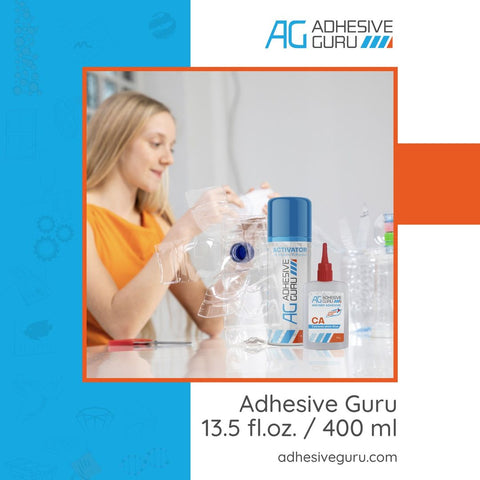How to Store Super Glue Properly
Super glue is a powerful adhesive that is widely used for various purposes, from fixing broken items to bonding materials together. However, storing super glue properly is essential to maintain its effectiveness and prolong its shelf life. In this article, we will discuss the best practices for storing super glue, ensuring that it remains in excellent condition for future use.
This article may interest you
The Differences Between CA Glue with Activator and Regular Glue
Introduction
Super glue, also known as cyanoacrylate adhesive, is a fast-acting and strong bonding agent that can bond various materials together quickly. To ensure that your super glue remains effective and ready for use when needed, it is crucial to store it properly. Proper storage can prevent premature curing, maintain its adhesive properties, and extend its shelf life.
Understanding the Composition of Super Glue
Super glue consists of a cyanoacrylate compound, which polymerizes rapidly when it comes into contact with moisture. This quick polymerization process allows the glue to bond surfaces together effectively. However, it also means that exposure to moisture or air can cause the glue to harden or become unusable.
Importance of Proper Storage
Properly storing super glue is essential for maintaining its quality and adhesive properties. When exposed to moisture or air, super glue can cure prematurely, rendering it ineffective for future use. By following the correct storage guidelines, you can ensure that your super glue remains in optimal condition, ready to provide a strong bond whenever you need it.
Ideal Storage Conditions
To store super glue properly, it is crucial to maintain ideal storage conditions. The following factors play a significant role in preserving the glue's effectiveness:
1. Avoiding Temperature Extremes
Super glue should be stored in a location where temperature extremes are minimized. High temperatures can accelerate the polymerization process, causing the glue to harden or cure inside the container. Conversely, extremely low temperatures can slow down the adhesive properties of the glue, making it less effective.
2. Maintaining Low Humidity Levels
Humidity can significantly affect the performance of super glue. Moisture in the air can trigger premature curing, rendering the glue unusable. To prevent this, it is important to store super glue in an area with low humidity levels. Airtight containers or storage solutions that offer protection against moisture are recommended.
3. Securing the Container
Ensure that the container holding the super glue is properly sealed and airtight. This prevents any moisture or air from entering and coming into contact with the glue. Always check the container's cap or lid to ensure a tight seal after each use.
4. Storing in a Cool, Dry Place
The ideal storage location for super glue is a cool and dry place. A cupboard or a drawer in a room with controlled temperature and humidity levels is suitable. Avoid storing super glue in areas prone to high humidity, such as bathrooms or kitchens.
5. Preventing Exposure to Air
Air exposure can cause the glue to harden or become less effective. When using super glue, ensure that the container is not left open for extended periods. Close the container immediately after use to minimize air exposure.
Proper Handling and Usage Tips
In addition to proper storage, following these handling and usage tips will further optimize your experience with super glue:
-
Clean the surfaces to be bonded before applying the glue. Remove any dust, grease, or other contaminants for a strong and lasting bond.
-
Apply the glue sparingly. A small amount is usually sufficient to create a strong bond.
-
Press the surfaces firmly together for a few seconds to allow the glue to set properly.
-
Avoid touching the bonded surfaces until the glue has completely cured. This usually takes a few minutes, but it's recommended to wait for the recommended curing time mentioned on the packaging.
-
Store the container upright to prevent accidental spills or leaks.
Conclusion
Properly storing super glue is essential for maintaining its adhesive properties and extending its shelf life. By following the guidelines outlined in this article, you can ensure that your super glue remains effective and ready to use whenever you need it. Remember to store it in a cool, dry place, protect it from moisture and air exposure, and handle it with care. With the right storage and handling, your super glue will continue to provide reliable bonding for your various projects.
Frequently Asked Questions (FAQs)
-
Q: Can I store super glue in the refrigerator? A: While storing super glue in the refrigerator can help prolong its shelf life, it is important to ensure that the glue is brought back to room temperature before use. Cold temperatures can affect the glue's viscosity and may impact its bonding effectiveness.
-
Q: How long does super glue last once opened? A: Once opened, super glue can typically last for about 12 months. However, this can vary depending on the brand and storage conditions. It is best to check the manufacturer's recommendations for specific information.
-
Q: What should I do if my super glue becomes thick or clumpy? A: If your super glue becomes thick or clumpy, it may indicate that it has expired or been exposed to air or moisture. It is advisable to replace the glue with a fresh bottle to ensure optimal performance.
-
Q: Can super glue be used on all materials? A: Super glue is suitable for bonding various materials, including metal, plastic, ceramic, rubber, and wood. However, it may not be suitable for all surfaces or applications. Always read the manufacturer's instructions and test the glue on a small, inconspicuous area before applying it to a larger surface.
-
Q: Is super glue safe to use? A: Super glue is generally safe to use when handled properly. However, it is essential to follow the safety instructions provided by the manufacturer. Avoid contact with skin, eyes, and clothing, and keep it out of reach of children.



Leave a comment